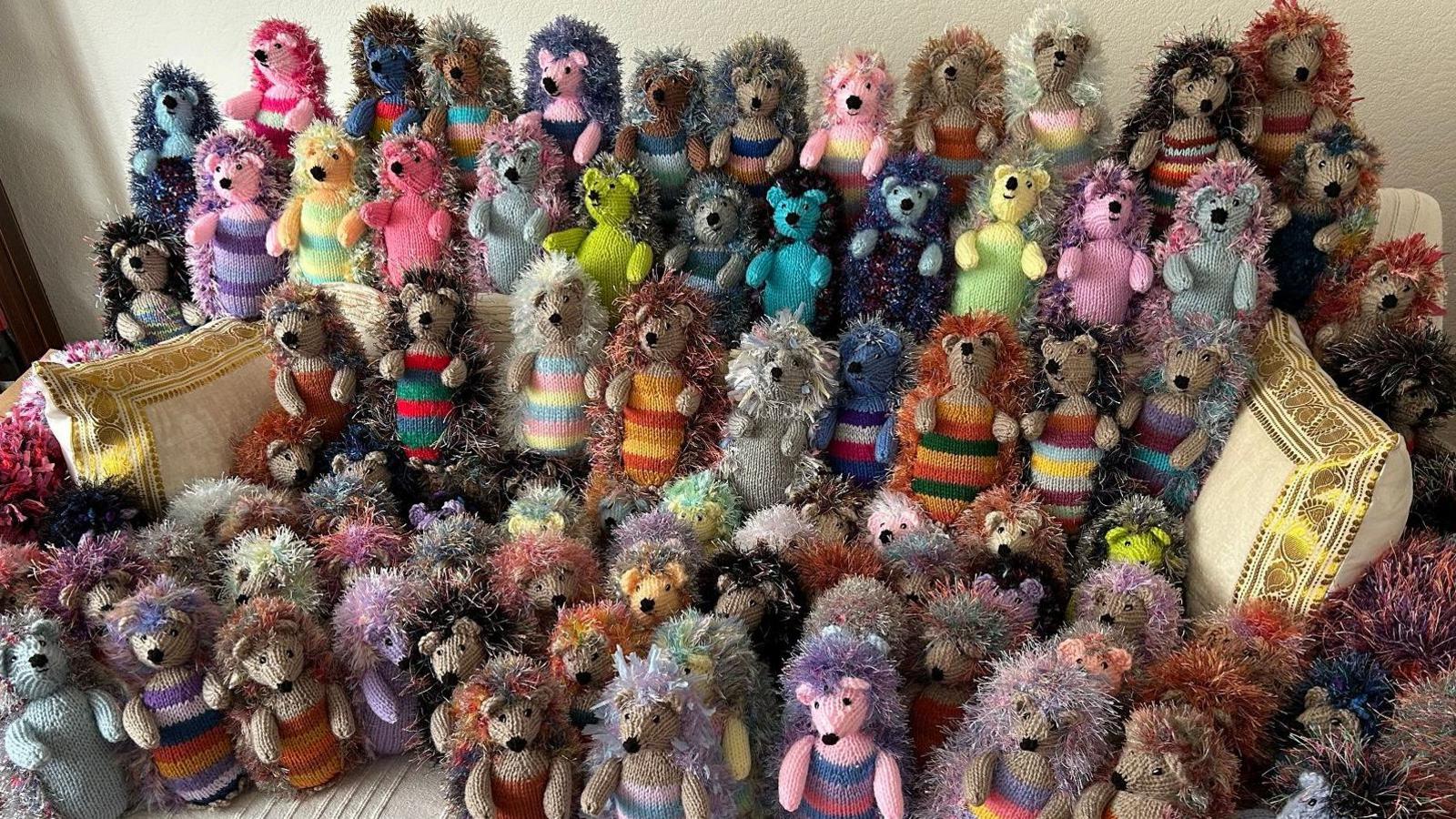'Hedgehog village' seeing decline in numbers
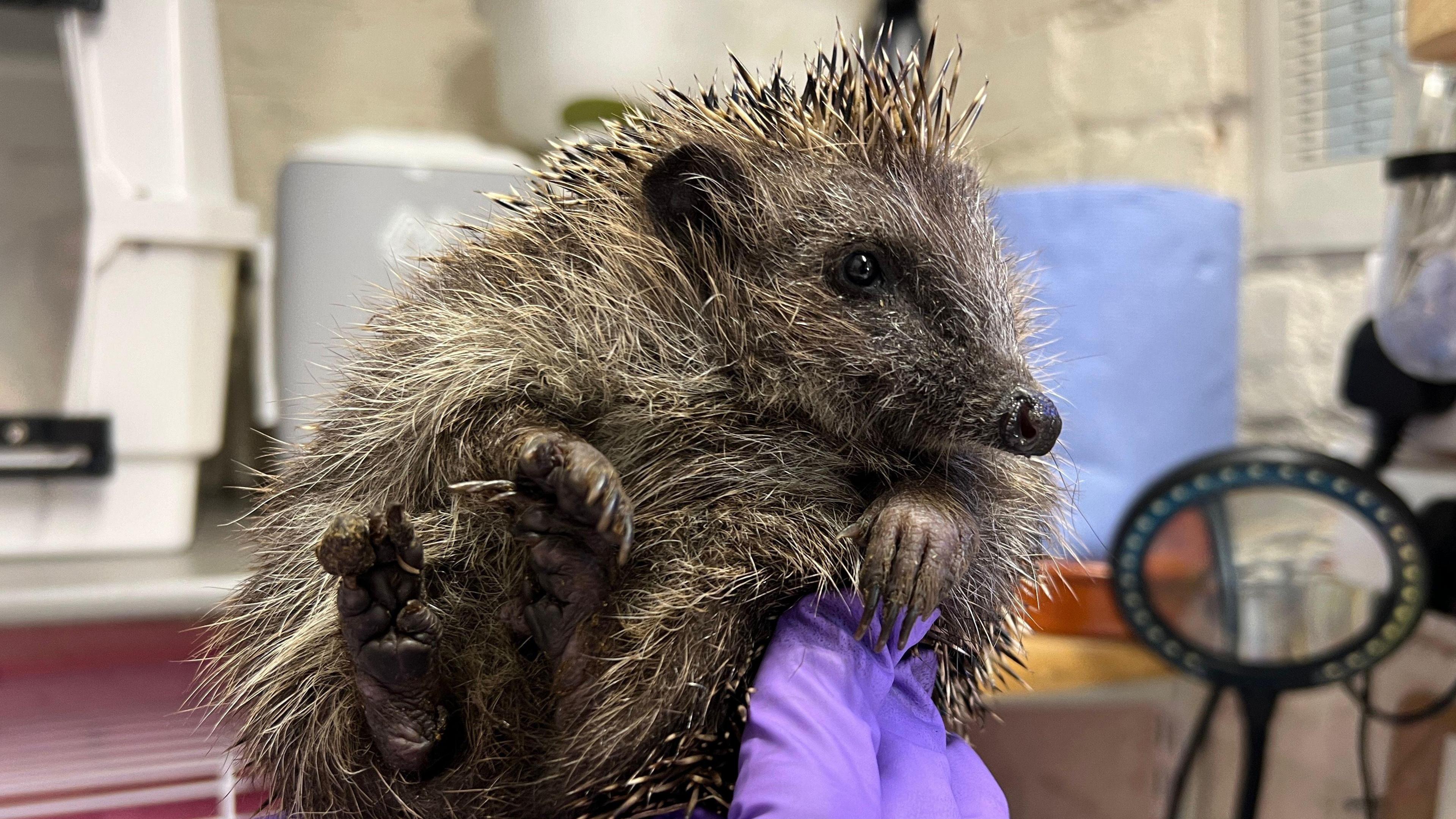
Scampi was released in the village of Hutton, near Driffield, after recovering from parasites
- Published
A village that declared itself hedgehog friendly has seen a decline in the spiky mammal.
More than 100 hedgehogs have been released in Burton Fleming since 2017, but a recent survey of villagers has found almost no evidence of a healthy population.
Ali Blyth, who monitors hedgehogs in the village, said: "In the first few years we saw lots of hedgehogs and babies, but in recent years there has been less and less."
According to the State of Britain's Hedgehogs, external report, between 30% and 75% of hedgehogs vanished between 2000 and 2020.
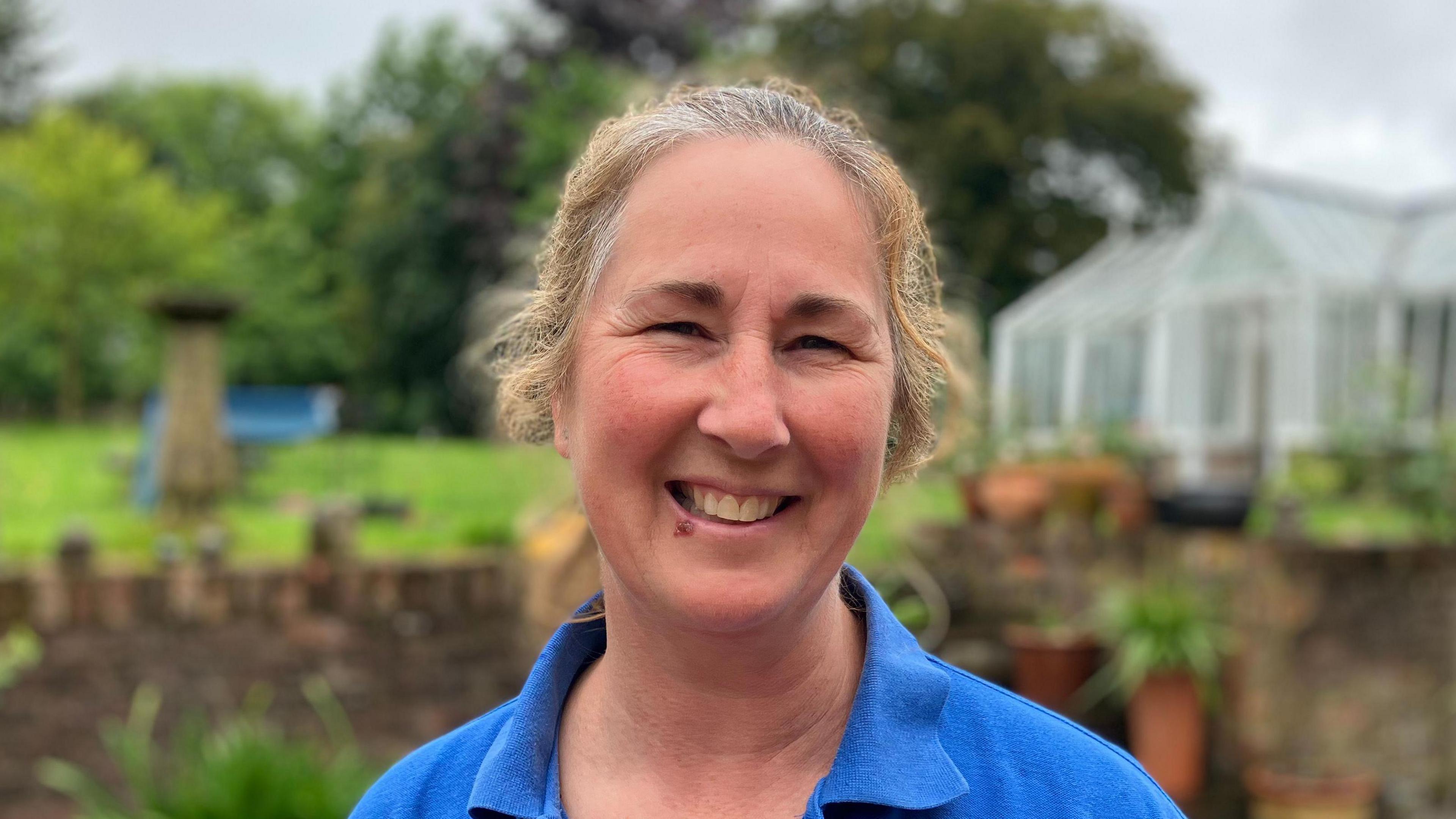
Ali Blyth says she used to have whole families of hedgehogs coming through her garden
Prof Philip Stephens, of Durham University, who is part of the team leading a new National Hedgehog Monitoring Programme, external, said: "Our monitoring has been established to help shed light on the reasons for the decline of hedgehog populations.
"That those declines seem to be concentrated in the countryside and not in urban areas, where they are often fed by humans, might point to problems with food supply in rural areas."
Prof Stephen added that the use of pesticide in agriculture "could well be implicated in the struggles of these generalist foragers".
Hedgehogs are being fed and watered in Hutton, near Driffield, where Wolds Hedgehog Rescue takes in sick and injured animals.
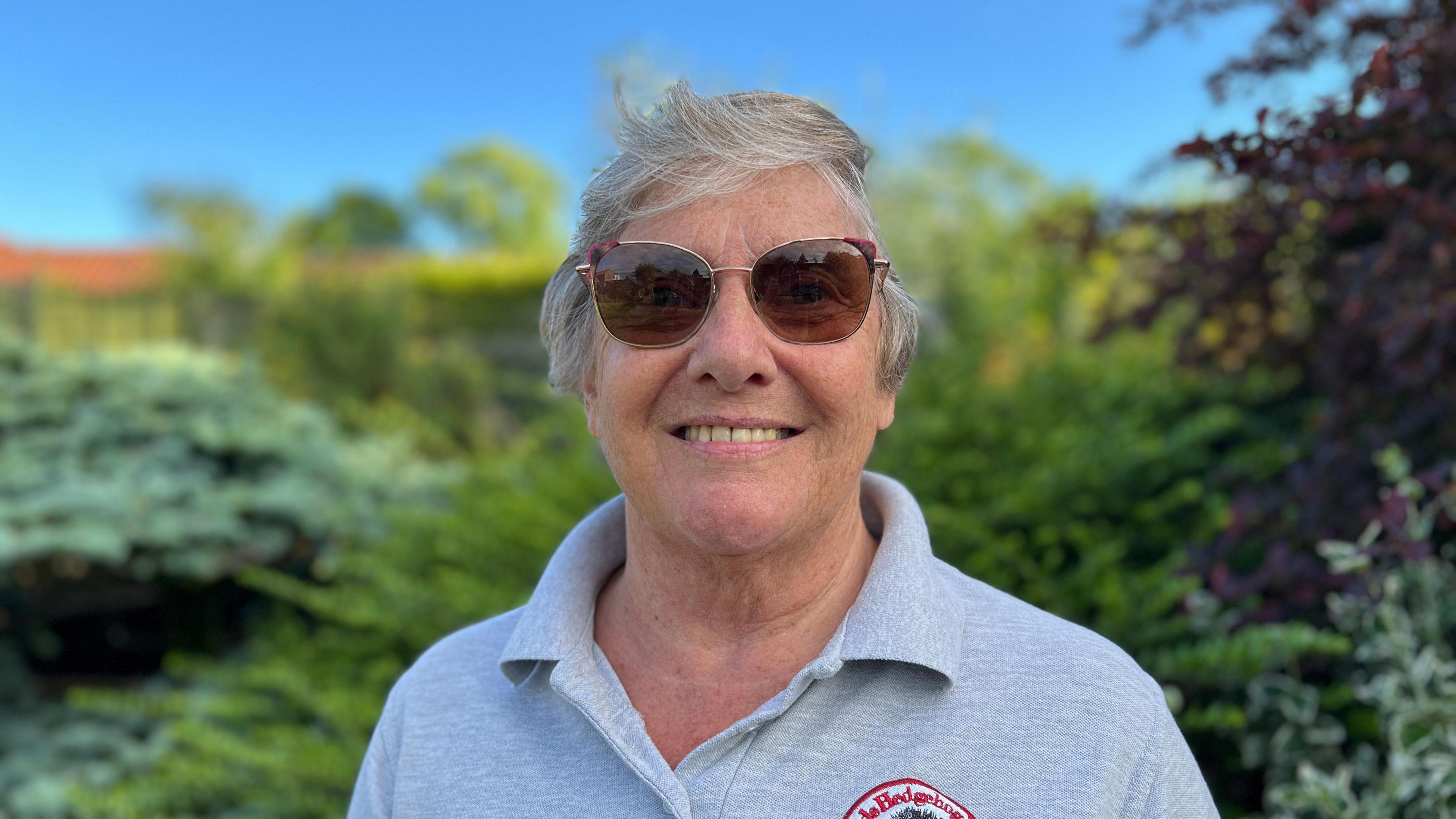
Ann Day, from Wolds Hedgehog Rescue
Ann Day, who runs the service, said "very few hedgehogs hibernated this year and the wetness has caused an awful lot more disease and parasites".
The hospital, which is run from her back garden, has been busier than in 2023, particularly with cases of ringworm.
She added: "We've seen some really dire cases of it this year."
A lot of the animals coming in to the hospital are severely dehydrated and experts say providing water remains the best thing residents can do to support them.
The British Hedgehog Preservation Society also recommends meaty cat and dog food or dry cat biscuits in more than one feeding station in the garden.
- Published25 May 2024
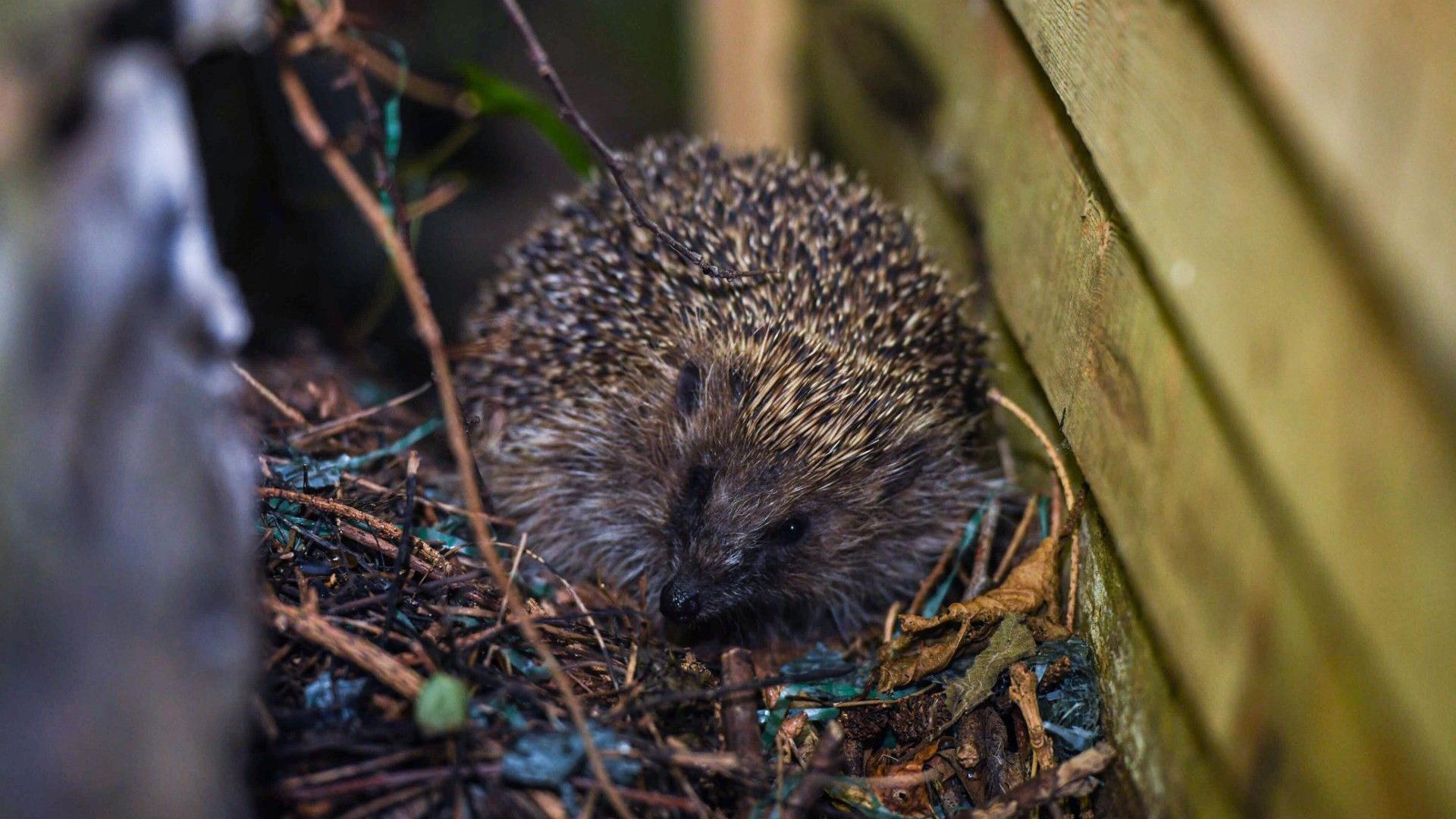
- Published9 May 2024
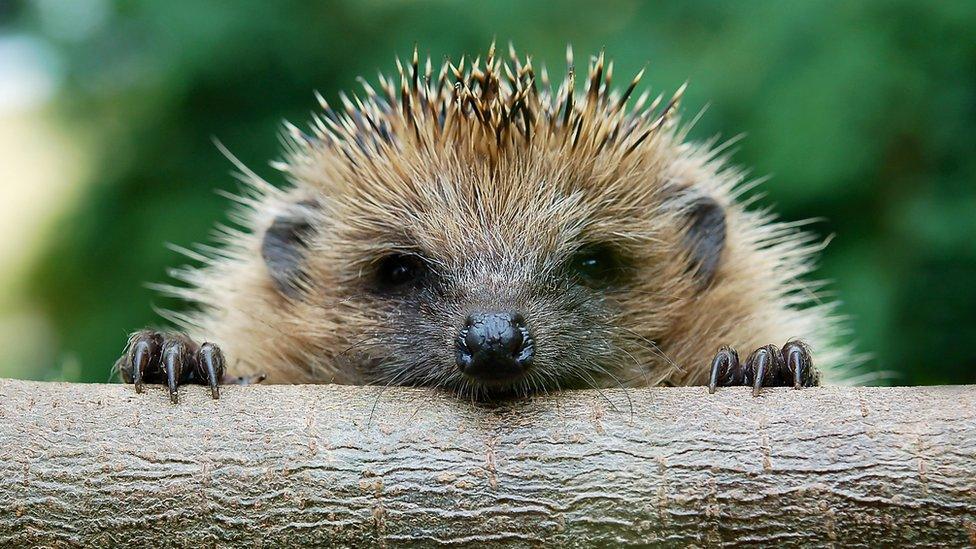
- Published30 April 2024
